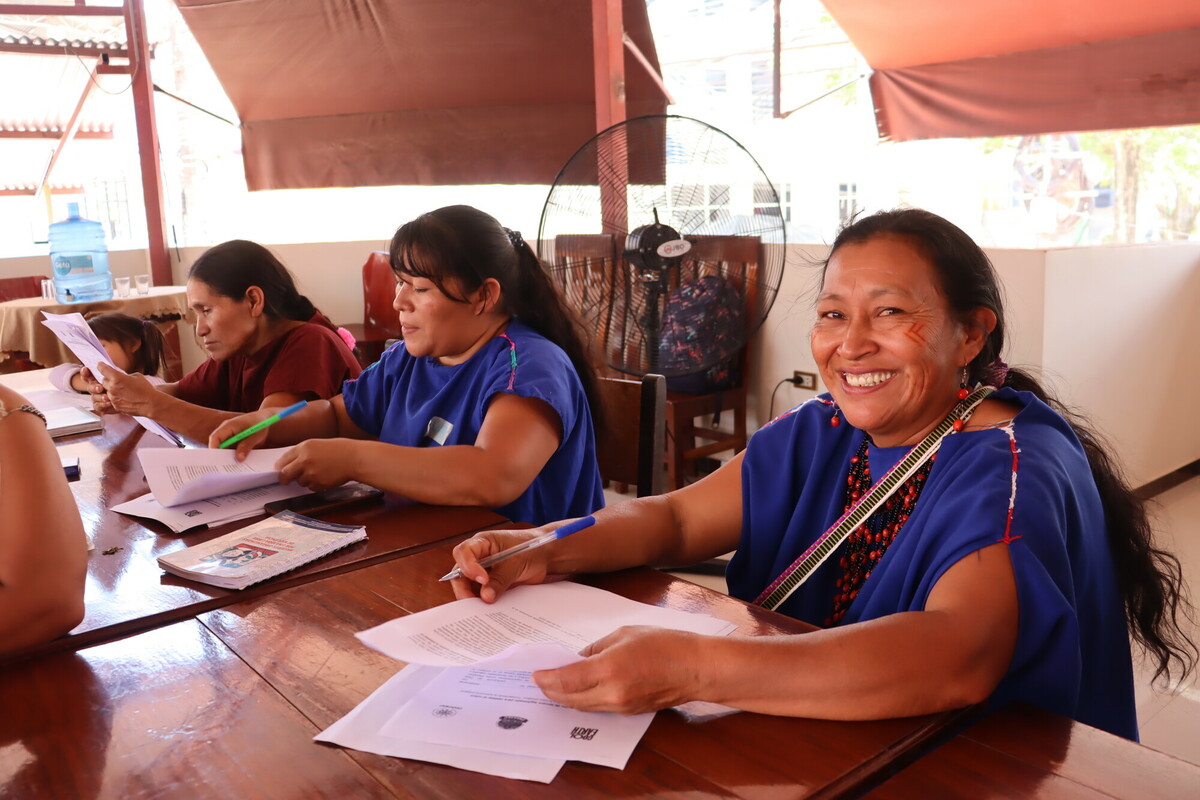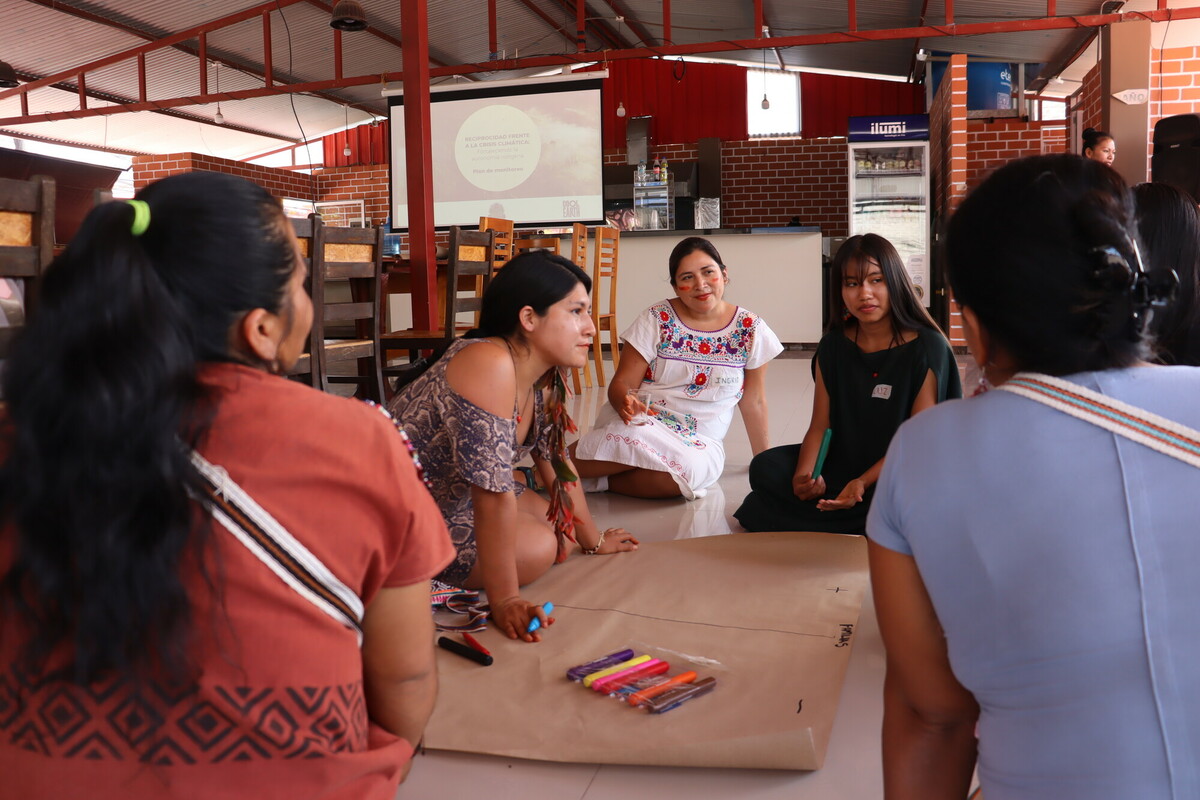You Asked, We Answered: Basic Income Pilot
In case you missed it, we launched the world’s first basic income pilot for people living in the rainforest last week.
We received an incredible response to this news. So much so that we wanted to address some of the brilliant questions that you sent our way. Let’s get stuck in.
1- What do people in the rainforest spend the money from Cool Earth on?
The quick answer is that Indigenous peoples use the money to cover their most urgent needs, such as food, medicine or to help their community.
However, ahead of the first transfer, we spent many months consulting with individuals, community leaders and our partner Indigenous-led organisations, ONAMIAP and OMIAASEC, to make sure this pilot responded to their needs and fitted their vision.
The results gave us great insights on the challenges people face. 82% answered that any income they earn is spent on buying food.
Deforestation, biodiversity loss and climate change exacerbate impacts on Indigenous food systems which were already negatively impacted by pressures like urbanisation and pollution from extractive industries. Indigenous peoples’ food insecurity ranks among the highest in the world. This pilot could have extraordinary impacts on access to healthy food, and ultimately, food sovereignty.


The ONAMIAP, OMIASEC and Cool Earth teams preparing the basic income sign up process for the Asháninka and Yanesha communities in Peru.
2- Are there any conditions attached to how the money should be spent?
Unlike payments for ecosystem services or other traditional cash transfer models, there are no conditions attached to these payments.
In a diverse and challenging place like the Amazon rainforest, only the people who live there know what’s best for them, not people thousands of miles away. They need autonomy and the power to make their own decisions on their very specific needs and unique circumstances. Only then will they have agency over their own development and the future of their rainforest lands.
It’s also cost effective. Monitoring conditions means that a lot of money is spent outside these communities and restricts their freedom. We are committed to ensuring that as much of your donation as possible goes directly to Indigenous peoples.


The ONAMIAP, OMIASEC and Cool Earth teams preparing the basic income sign up process for the Asháninka and Yanesha communities in Peru.
3- What are the risks of the pilot? What preventative measures are in place to ensure the success of the trial?
Risks are a part of any pilot. The best people to identify those are the people who live in the communities. Over the last few months, we’ve made it a priority to create safe spaces to openly discuss fears and risks.
The main risks identified by the communities are related to loss of community cohesion and practices, an increase in gender-based violence, a negative impact on family dynamics and an increase in alcoholism.
So how do we safeguard against these risks?
Communities and Indigenous organisations already have their own governance systems to respond to threats to their individual or collective rights. They, as much as us, don’t want this pilot to fail. We respect those processes and contribute our thoughts when we’re asked to, so that we all move forward in the same direction.
Right from the start, communities asked us to support them throughout this journey. It was never conceived in a way in which we transferred the money and disappeared. Regular workshops to address risks, new fears, and logistical issues have already been planned for the next two years, alongside trips and meetings to nurture relationships.
Finally, communication is key. Thanks to our tech partner, AidKit, we’ve established a direct line of communication with the communities through a support portal (think customer service – but a good one!). They can talk to us about anything whether it’s issues receiving payments, corruption, or negative impacts on community cohesion. This will activate a response which will be discussed with our partners ONAMIAP and OMIAASEC as well as with the leadership of the communities involved in the pilot.
